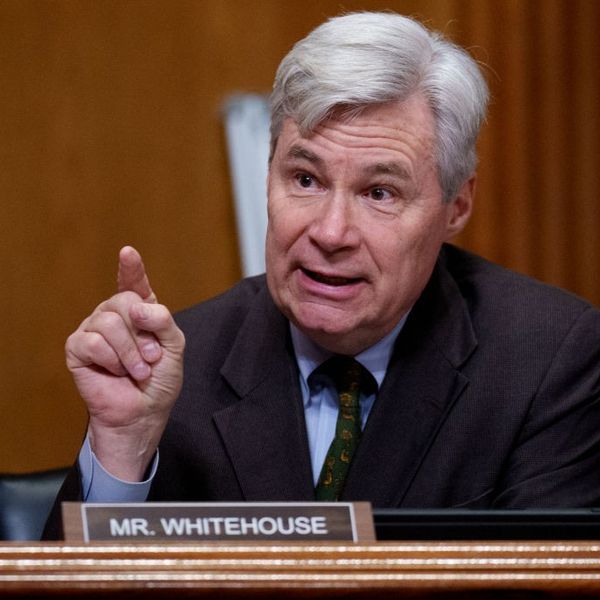Reprieve for Amazon as Controversial Dam Gets Setback
Operating suspension issued for Belo Monte Dam in Brazil
In a case described as precedent-setting, a Brazilian court has suspended the operating license for one of the world's biggest--and most controversial--dams.
The long-contested Belo Monte Dam, would be the world's third-largest such hydroelectric project, International Rivers explains, and would "divert the flow of the Xingu, devastate an extensive area of the Brazilian rainforest, displace over 20,000 people, and threaten the survival of indigenous tribes that depend on the river."
The court Federal Court in Altamira, Para, EFE reports, issued the suspension last Thursday because the company and government had failed for the past year to present a plan of how they would set up a regional office of the national Indian protection agency to help mitigate consequences the project would unleash.
The court also issued a fine to the company and government of $225,000 for the failure.
Writing in 2012, human rights advocate Bianca Jagger said the dam would "change the face of the Amazon basin forever," and, as it would necessitate creation of even more dams, she added, "The destruction will not stop at Belo Monte. Belo Monte is only the beginning of this human rights and environmental catastrophe."
Reuters reports that electricity generation from the dam was just weeks away.
Christian Poirier of Amazon Watch told the Guardian that though the decision would not stop Belo Monte, "This case sets an important precedent for the defence of indigenous rights in the Amazon at a time when the government is set to repeat the Belo Monte disaster by building dozens of dams on the Tapajos River."
An Urgent Message From Our Co-Founder
Dear Common Dreams reader, The U.S. is on a fast track to authoritarianism like nothing I've ever seen. Meanwhile, corporate news outlets are utterly capitulating to Trump, twisting their coverage to avoid drawing his ire while lining up to stuff cash in his pockets. That's why I believe that Common Dreams is doing the best and most consequential reporting that we've ever done. Our small but mighty team is a progressive reporting powerhouse, covering the news every day that the corporate media never will. Our mission has always been simple: To inform. To inspire. And to ignite change for the common good. Now here's the key piece that I want all our readers to understand: None of this would be possible without your financial support. That's not just some fundraising cliche. It's the absolute and literal truth. We don't accept corporate advertising and never will. We don't have a paywall because we don't think people should be blocked from critical news based on their ability to pay. Everything we do is funded by the donations of readers like you. Will you donate now to help power the nonprofit, independent reporting of Common Dreams? Thank you for being a vital member of our community. Together, we can keep independent journalism alive when it’s needed most. - Craig Brown, Co-founder |
In a case described as precedent-setting, a Brazilian court has suspended the operating license for one of the world's biggest--and most controversial--dams.
The long-contested Belo Monte Dam, would be the world's third-largest such hydroelectric project, International Rivers explains, and would "divert the flow of the Xingu, devastate an extensive area of the Brazilian rainforest, displace over 20,000 people, and threaten the survival of indigenous tribes that depend on the river."
The court Federal Court in Altamira, Para, EFE reports, issued the suspension last Thursday because the company and government had failed for the past year to present a plan of how they would set up a regional office of the national Indian protection agency to help mitigate consequences the project would unleash.
The court also issued a fine to the company and government of $225,000 for the failure.
Writing in 2012, human rights advocate Bianca Jagger said the dam would "change the face of the Amazon basin forever," and, as it would necessitate creation of even more dams, she added, "The destruction will not stop at Belo Monte. Belo Monte is only the beginning of this human rights and environmental catastrophe."
Reuters reports that electricity generation from the dam was just weeks away.
Christian Poirier of Amazon Watch told the Guardian that though the decision would not stop Belo Monte, "This case sets an important precedent for the defence of indigenous rights in the Amazon at a time when the government is set to repeat the Belo Monte disaster by building dozens of dams on the Tapajos River."
In a case described as precedent-setting, a Brazilian court has suspended the operating license for one of the world's biggest--and most controversial--dams.
The long-contested Belo Monte Dam, would be the world's third-largest such hydroelectric project, International Rivers explains, and would "divert the flow of the Xingu, devastate an extensive area of the Brazilian rainforest, displace over 20,000 people, and threaten the survival of indigenous tribes that depend on the river."
The court Federal Court in Altamira, Para, EFE reports, issued the suspension last Thursday because the company and government had failed for the past year to present a plan of how they would set up a regional office of the national Indian protection agency to help mitigate consequences the project would unleash.
The court also issued a fine to the company and government of $225,000 for the failure.
Writing in 2012, human rights advocate Bianca Jagger said the dam would "change the face of the Amazon basin forever," and, as it would necessitate creation of even more dams, she added, "The destruction will not stop at Belo Monte. Belo Monte is only the beginning of this human rights and environmental catastrophe."
Reuters reports that electricity generation from the dam was just weeks away.
Christian Poirier of Amazon Watch told the Guardian that though the decision would not stop Belo Monte, "This case sets an important precedent for the defence of indigenous rights in the Amazon at a time when the government is set to repeat the Belo Monte disaster by building dozens of dams on the Tapajos River."

